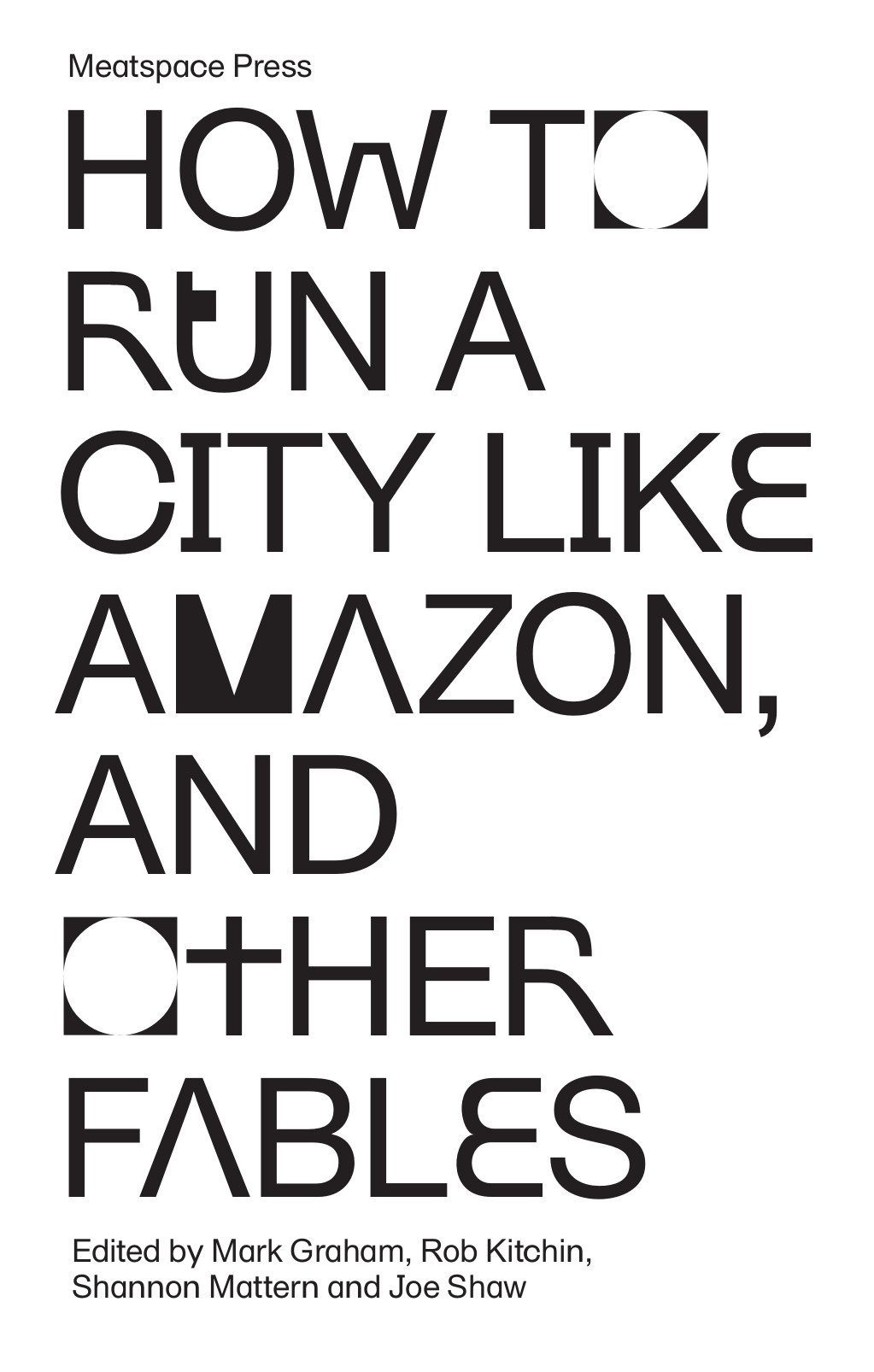Silvio Lorusso: Entreprecariat: Everyone Is an Entrepreneur Nobody Is Safe (2018–) [IT, EN]
Filed under book | Tags: · capitalism, design, entrepreneurship, labour, platform, precariat, precarity, work

“Entrepreneur or precarious worker? These are the terms of a cognitive dissonance that turns everyone’s life into a shaky project in perennial start-up phase. Silvio Lorusso guides us through the entreprecariat, a world where change is natural and healthy, whatever it may bring. A world populated by motivational posters, productivity tools, mobile offices and self-help techniques. A world in which a mix of entrepreneurial ideology and widespread precarity is what regulates professional social media, online marketplaces for self-employment and crowdfunding platforms for personal needs. The result? A life in permanent beta, with sometimes tragic implications.”
Italian edition
With a foreword by Geert Lovink and an afterword by Raffaele Alberto Ventura
Publisher Krisis Publishing, Brescia, 2018
ISBN 9788894402902, 8894402908
223 pages
English edition
Translated by Isobel Butters
Publisher Onomatopee, Eindhoven, 2019
Creative Commons BY-NC 4.0 License
ISBN 9789493148161, 9493148165
257 pages
Interviews with author: Walter Marocchi (2019), Floor van Luijk (Metropolis M, 2020).
Reviews: Marco Petroni (Artribune, 2019), Tiziano Bonini (cheFare, 2019), Sandro Moiso (Carmilla, 2019), Giulio Gonella (Volume, 2020), Alessandro Ludovico (Neural, 2020).
Commentary: Nicola Bozzi (Digimag, 2017, EN).
Author
Publisher (IT)
Publisher (EN)
WorldCat (IT)
WorldCat (EN)
Entreprecariat – Siamo tutti imprenditori. Nessuno è al sicuro (Italian, 2018, 9 MB)
Entreprecariat: Everyone Is an Entrepreneur Nobody Is Safe (English, trans. Isobel Butters, 2019, 7 MB, added on 2020-5-12)
How to Run a City Like Amazon, and Other Fables (2019)
Filed under book | Tags: · city, entrepreneurship, governance, management, platform, technology, urbanism

“Should cities be run like businesses? Should city services and infrastructure be run by businesses?
For some urban commentators, policy-makers, politicians and corporate lobby groups, the answer is ‘yes’ to both questions. Others are critical of such views, cautious about shifting the culture of city administration from management to entrepreneurship, and transforming public assets and services run for the common good into markets run for profit.
The stories and essays in this book explore how a city might look, feel and function if the business models, practices and technologies of 38 different companies were applied to the running of cities. They ask: what would it be like to live in a city administered using the business model of Amazon (or Apple, IKEA, Pornhub, Spotify, Tinder, Uber, etc.) or a city where critical public services are delivered by these companies?
Collectively, the chapters ask us to imagine and reflect on what kind of cities we want to live in and how they should be managed and governed.”
Contributors: Manuel B. Aalbers, Tooran Alizadeh, James Ash, Sarah Barns, Gavin Brown, Ryan Burns, Matthew Claudel, Jeremy W. Crampton, Ayona Datta, Martin Dodge, Leighton Evans, Jessica Foley, Jennifer Gabrys, Mark Graham, Tony H. Grubesic, Edward Helderop, Kara C. Hoover, Andrew Iliadis, Kurt Iveson, Glenn Kaufmann, Rob Kitchin, Agnieszka Leszczynski, Sophia Maalsen, Shannon Mattern, Harvey J. Miller, Cian O’Callaghan, Nancy Odendaal, Dietmar Offenhuber, Alison Powell, Lizzie Richardson, Gillian Rose, Jathan Sadowski, Kalpana Shankar, Joe Shaw, Harrison Smith, Monica Stephens, Linnet Taylor, Jim Thatcher, Pip Thornton, Anthony Vanky, Alberto Vanolo, Alan Wiig, Katharine Willis, Matthew Zook.
Edited by Mark Graham, Rob Kitchin, Shannon Mattern, and Joe Shaw
Publisher Meatspace Press, London, Oct 2019
Creative Commons BY-NC-SA License
ISBN 9780995577671
1357 paragraphs
Review: Jeremy Williams (Int’l J Urban & Regional Research, 2020).
Comment (0)Michael Hardt, Antonio Negri: Assembly (2017)
Filed under book | Tags: · activism, assembly, autonomy, colonialism, commons, democracy, entrepreneurship, finance, labour, multitude, neoliberalism, organization, politics, protest, social movements, subjectivity

“In recent years ‘leaderless’ social movements have proliferated around the globe, from North Africa and the Middle East to Europe, the Americas, and East Asia. Some of these movements have led to impressive gains: the toppling of authoritarian leaders, the furthering of progressive policy, and checks on repressive state forces. They have also been, at times, derided by journalists and political analysts as disorganized and ineffectual, or suppressed by disoriented and perplexed police forces and governments who fail to effectively engage them. Activists, too, struggle to harness the potential of these horizontal movements. Why have the movements, which address the needs and desires of so many, not been able to achieve lasting change and create a new, more democratic and just society? Some people assume that if only social movements could find new leaders they would return to their earlier glory. Where, they ask, are the new Martin Luther Kings, Rudi Dutschkes, and Stephen Bikos?
With the rise of right-wing political parties in many countries, the question of how to organize democratically and effectively has become increasingly urgent. Although today’s leaderless political organizations are not sufficient, a return to traditional, centralized forms of political leadership is neither desirable nor possible. Instead, as Michael Hardt and Antonio Negri argue, familiar roles must be reversed: leaders should be responsible for short-term, tactical action, but it is the multitude that must drive strategy. In other words, if these new social movements are to achieve meaningful revolution, they must invent effective modes of assembly and decision-making structures that rely on the broadest democratic base. Drawing on ideas developed through their well-known Empire trilogy, Hardt and Negri have produced, in Assembly, a timely proposal for how current large-scale horizontal movements can develop the capacities for political strategy and decision-making to effect lasting and democratic change. We have not yet seen what is possible when the multitude assembles.”
Publisher Oxford University Press, 2017
Heretical Thought series
ISBN 9780190677961, 0190677961
xxii+346 pages
Reviews: Publishers Weekly (2017), Christian Fuchs (triple-C, 2017).
Comment (0)
